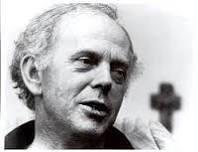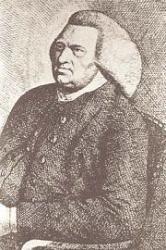Planning worship?
Check out our sister site, ZeteoSearch.org,
for 20+ additional resources related to your search.
- |
User Links
Person Results
Sylvester Main
1817 - 1873 Meter: 7.6.7.6.7.8.7.6 Composer of "DYING LOVE" Died: October 5, 1873.
Main, a singing school teacher, partnered with Lucius Biglow to take over William Bradbury’s business in 1867, forming the well known Biglow & Main publishing house. His son was Hubert Main.
"Among the playmates who used to gather on the village green was Sylvester Main, who was two or three years older than I. He was a prime favorite with the gentler sex, for he used to protect us from the annoyances of more mischievous boys. In the autumn of 1834 mother and I left Ridgefield and went to live again in Westchester County; and I then bade my friend, Sylvester, adieu. Not until thirty years later did we meet again, this time, strangely enough, in the office of William B. Bradbury with whom he was afterwards a business partner; and from 1864 to the time of his death in 1873 we worked together constantly."
Crosby, p. 8
Main’s works include:
Cottage Melodies, with William Bradbury (New York: Carlton & Porter, 1859)
Hallowed Songs/, with Philip Phillips & Theodore Perkins (New York: Carlton & Porter, 1865)
Sources
Jones, pp. 13, 89
http://www.hymntime.com/tch/bio/m/a/i/main_s.htm
=====================
The Main of Biglow and Main was Sylvester Main, born in Ridgefield in 1817 and a childhood friend of Fanny Crosby. He became a singing-school teacher and wound up in New York City, compiling books of hymn music. He went to work for William Bradbury, music publisher and hymnist, and when Bradbury died around 1868, Biglow and Main partnered to take over the firm.
http://www.theridgefieldpress.com/33332/about-town-sacred-music/
Sylvester Main
Charles Vincent
1852 - 1934 Person Name: C. Vincent, 1852-1934 Meter: 7.6.7.6.7.8.7.6 Composer of "ST. DOROTHEA" in The Methodist Hymn-Book with Tunes Vincent, Charles; b. 9-19-1852, Houghton-le-Spring, Durham, d. 2-28-34, Monte Carlo; English organist. Full name Charles John Vincent, Jr.
Charles Vincent
James P. Carrell
1787 - 1854 Meter: 7.6.7.6.7.8.7.6 Composer of "BROOMSGROVE (Carrell)" James P. Carrell was a "farmer, Methodist minister, and county clerk in Lebanon, Russell County, Virginia. He was author of the Songs of Zion (1821) and co-author of Virginia Harmony (1831)" (Steel and Hulan 2010). Several of his songs were printed in Kentucky Harmony and its supplements.
James P. Carrell
Malcolm Williamson

1931 - 2003 Meter: 7.6.7.6.7.8.7.6 Composer of "OBEDIENCE (Williamson)" Malcolm Benjamin Graham Christopher Williamson AO (honorary), CBE (21 November 1931 – 2 March 2003) was an Australian composer. He was the Master of the Queen's Music from 1975 until his death.
Williamson was born in Sydney and studied composition and horn at the Sydney Conservatorium of Music. His teachers included Eugene Goossens. In 1950 he moved to London where he worked as an organist, a proofreader, and a nightclub pianist. From 1953 he studied with Elisabeth Lutyens. Williamson was a prolific composer at this time, receiving many commissions and often performed his own works, both on organ and piano.
In 1975, the death of Sir Arthur Bliss left the title of Master of the Queen's Music vacant. The selection of Williamson to fill this post was a surprise, over other composers such as Benjamin Britten, Michael Tippett and Malcolm Arnold, such that William Walton had remarked that "the wrong Malcolm" had been chosen. In addition, Williamson was the first non-Briton to hold the post. He wrote a number of pieces connected to his royal post, including Mass of Christ the King (1978) and Lament in Memory of Lord Mountbatten of Burma (1980). However, controversy attended his tenure, notably his failure to complete the intended "Jubilee Symphony" for the Silver Jubilee of Queen Elizabeth II in 1977. He became less prolific in "Royal" works during the last twenty years or so of his life, although he never completely ceased to take interest in writing music for the Royal Family. His overall compositional output slowed considerably due to a series of illnesses. He died in 2003 in a hospital in Cambridge.
Williamson married Dolores Daniel in 1960 and had one son and two daughters.
Some of Williamson's early works use the twelve tone technique of Arnold Schoenberg, but his greatest influence is often said to be Olivier Messiaen. He discovered Messiaen's music shortly before converting to Roman Catholicism in 1952. He was also influenced by Benjamin Britten, as well as by jazz and popular music (this latter influence may have come in part from him working as a night club pianist in the 1950s).
Williamson wrote seven symphonies; four numbered piano concertos (plus the Concerto for Two Pianos and Strings, the Concerto for Two Pianos and Wind Quintet, after Alan Rawsthorne, and the Sinfonia Concertante), concertos for violin, organ, harp and saxophone; and many other orchestral works. He wrote ballets, including Sun Into Darkness and The Display, many effective choral works, chamber music, music for solo piano, and music for film and television including the Prologue and Main Title of Watership Down. His operas include English Eccentrics, to a libretto by Edith Sitwell; Our Man in Havana, after Graham Greene's novel; The Violins of Saint Jacques, from Patrick Leigh Fermor's novel, featuring a volcanic eruption that kills all but one of the principal characters; and Lucky Peter's Journey and The Growing Castle, both of which set plays by August Strindberg. Williamson's music for children includes the operas The Happy Prince (based on the story by Oscar Wilde) and Julius Caesar Jones as well as cassations, which are short operas with audience participation. The cassation The Valley and the Hill was written for the Silver Jubilee of Elizabeth II in 1977 and performed by 18,000 children.
The composer's largest choral work, his Mass of Christ the King, was commissioned by the Three Choirs Festival, also for the 1977 jubilee. It attracted attention partly because Williamson delivered it late. Scored for two sopranos, tenor, baritone, SATB chorus, SATB echo choir, and large orchestra, the work received several performances over a few years, including a live BBC broadcast in 1981, but has more recently been overlooked.
Williamson became generally much less prolific in later life, although he had some very busy years. For example, in 1988 Williamson wrote a large-scale choral-orchestral work The True Endeavour, the orchestral Bicentennial Anthem, the Fanfare of Homage for military band, a ballet Have Steps Will Travel for John Alleyne and the National Ballet of Canada, Ceremony for Oodgeroo (Oodgeroo Noonuccal, formerly known as Kath Walker) for brass quintet, and also commenced work on a substantial new choral-symphony The Dawn is at Hand (to texts by Kath Walker), completed and performed in Australia the following year. Other works include the Requiem for a Tribe Brother (another Australian work, completed in 1992), a third string quartet (1993), a fourth piano concerto (1994) and a symphony for solo harp, Day That I Have Loved (1994). The orchestral song cycle on texts by Iris Murdoch, A Year of Birds, premiered at The Proms in 1995. The same year also saw the premiere of an orchestral work With Proud Thanksgiving, commissioned for the fiftieth anniversary of the United Nations, and dedicated to the memory of Williamson's long-time friend, the UK Prime Minister Harold Wilson.
Williamson was appointed a Commander of the Order of the British Empire (CBE) in 1976, and an honorary Officer of the Order of Australia (AO) in 1987. Honorary awards in the Order of Australia are made only to people who are not citizens of Australia. It is not clear why Williamson did not qualify for a substantive award, as there appears to be nothing on the public record to suggest he ever relinquished his Australian citizenship. The citation for the award read "For service to music and the mentally handicapped". He was the first Master of the Queen's Music in over a century not to be knighted.
--en.wikipedia.org/wiki/
Malcolm Williamson
James Relly

1722 - 1778 Meter: 7.6.7.6.7.8.7.6 Author of "Salvation of God" James Relly was born about 1722 at Jeffreston, Pembrokeshire, Wales, and died in 1778. He was converted to Christianity during the Great Awakening ushered in by George Whitefield. He worked under George Whitefield as a Calvinistic Methodist preacher and missionary. However, Whitefield and Relly separated ways over Relly's seemingly universalist teaching that all humanity was elect (i.e. saved) when Christ took the punishment for all sin when he died. He also departed from both the Calvinists and Methodists by taking the doctrine of Justification further, in teaching that believers no longer sin and the Law's sole purpose is to condemn humanity and point them to Christ.
He was the mentor of John Murray, the founder of the Universalist Church of America. Relly along with his brother John wrote Christian Hymns, Poems and Spiritual Songs in 1758, which John Murray had republished in America in 1776.
Dianne Shapiro; from an article by Alexander Gordon in Dictionary of National Biography, 1885-1900, vol. 48; Dictionary of Unitarian and Universalist Biography; and Disoriented. Reoriented. blog (https://disorientedtheology.wordpress.com/2013/08/29/all-shall-be-well-chapter-6-james-relly/)
James Relly
Herbert Sanders
1878 - 1938 Person Name: Dr. Herbert Sanders, 1879- Meter: 7.6.7.6.7.8.7.6 Composer of "SYRIAN STARS"
Herbert Sanders
Agnes Bulmer
1775 - 1837 Meter: 7.6.7.6.7.8.7.6 Author of "Laying the Foundation" Bulmer, Agnes, née Collinson, third daughter of Edward Collinson, born in Lombard Street, London, Aug. 31, 1775, and married in 1793 to Mr. Joseph Buhner. Her husband's death took place in 1828, and hers on the 30th Aug., 1837. She published in 1836, Memoirs of Mrs. Mortimer; in 1833, Messiah's Kingdom, a poem in 12 books; in addition to articled contributed to the Youth's Instructor, &c. Her Scripture Histories appeared posthumously in 1837-8, and her Select Letters were published in 1842, with an introduction and notes, by the Rev. W. M. Bunting; and her Memoir in 1837 by her sister. Mrs. Bulmer was a member of the Wesleyan Society. Her best known hymn, "Thou who hast in Zion laid," was written for the laying of the foundation stone of the Oxford Road Wesleyan Chapel, Manchester, July 11, 1825, and included in the Supplement to the Wesleyan Hymn Book, 1830, No. 737.
-- John Julian, Dictionary of Hymnology (1907)
Agnes Bulmer
L. Meadows White
1860 - 1950 Person Name: L. M. White, 1860-1950 Meter: 7.6.7.6.7.8.7.6 Composer of "GERSAU" in Singing the Faith
L. Meadows White


 My Starred Hymns
My Starred Hymns


